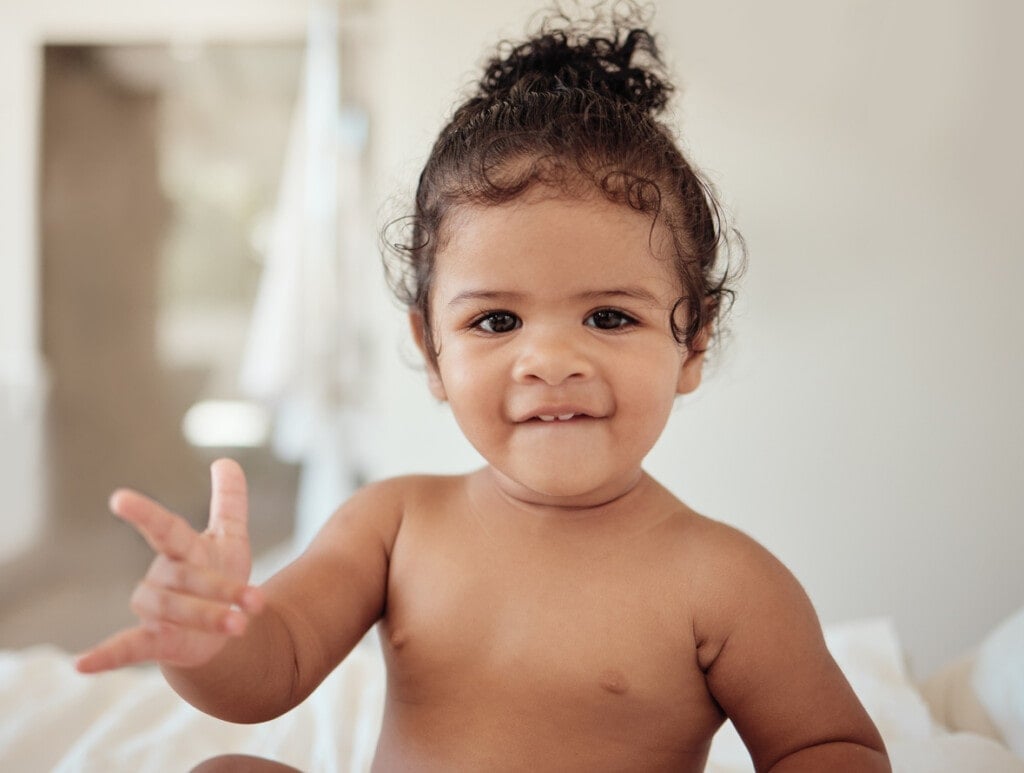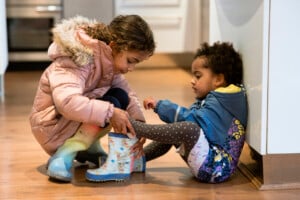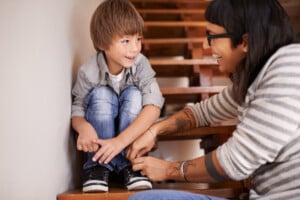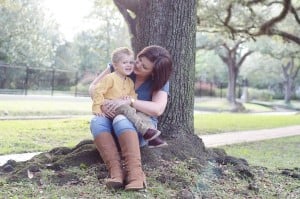A baby’s first year is an incredible time filled with many changes. These include a rapid development in communication skills and hitting speech milestones. From cooing and babbling to responding to their name and using gestures, babies make giant leaps in their ability to communicate with the world around them, with 6-month speech milestones and 12-month speech milestones. While we explore some key speech and language milestones babies reach during this exciting time, let us first discuss what milestones are and ways to use them to measure development.
What is a Speech Milestone?
Developmental speech milestones are communication skills most children can perform when they reach a certain age. These milestones build on one another and help us know if a child’s development is on track. It’s important to remember that all children develop at their own pace, and no two children are the same. It sounds counterintuitive because milestones are quite literally rooted in comparison but try not to compare your baby to other children you know. Instead, use these speech milestones as a guide for your child’s growth in their first year.1,2
Communication and Speech Milestones for 0-6 Months
Some key milestones are achieved by the time your baby reaches 6 months. By 4 months old, we expect a baby to smile back when you talk to them, recognize your voice, and make various cooing sounds. Babies should start being aware of themselves, their surroundings, and their caregivers.3,5
By 6 months, we also expect babies to track their eyesight toward a sound source, pay attention to music, begin laughing and babbling, and differentiate sounds for pleasure and displeasure (crying, whining, laughing, cooing, etc.) These skills might seem minuscule, and some might even be hard to notice in a newborn, but they serve as foundational skills for the more significant speech milestones in the coming months.4,5
Communication and Speech Milestones for 6-12 Months
There is something special and fun about the 6–12-month stage. There is so much learning, growing, and changing between 6-12 months as your baby explores their abilities, limitations, and environments. Each milestone is marked with an emerging age when the skill should begin to develop, and at a mastered age, the latest skill is expected to be learned. Remember, each baby is different, and the ages of mastery are truly a range. If your baby is a few weeks early or a few weeks behind, don’t fret. If your baby is delayed more than 3 months in mastering a speech milestone, speak to your pediatrician.
Babbling and Early Sounds
Around the 6-month speech milestone mark, babies begin babbling and experimenting with sounds. They may start to make repeated consonant-vowel sounds or reduplicated babbling, such as “ba-ba-ba” or “ma-ma-ma.” Babbling is an essential precursor to language development, as it helps babies learn how to coordinate the movements of their mouth, tongue, and vocal cords. At this age, babies start to recognize the sounds of their names and the voices of familiar people. By 8-10 months, your baby may start producing non-reduplicated babbles. More simply, they are starting to combine a variety of consonants and vowels, like “ba-da-te-go.” Talking to your baby is the best way to help them learn to start babbling. Encourage them by babbling back or speaking in a high-pitch sing-song voice.2,5,6
Responding to Their Name
As babies approach the 9-month mark, they typically become more responsive to their names. They may turn their head or look toward the source of the sound when they hear their name called. This is a significant speech milestone in communication development, as it shows that babies are beginning to understand that words have meaning. They can use them to identify people and things. Babies may also start recognizing the names of family members at this time.
To work on this skill, start by familiarizing your baby with their name by saying it to them frequently with good eye contact and singing songs with their name. Later, you can sit out of your baby’s line of sight and call their name, hoping they turn toward you. Make sure to clap and praise them when they do!5,6
Using Gestures
Gestures are a vital prerequisite speech milestone skill that often emerges around 9 months for verbal language and is mastered by 12 months. They teach a baby that their actions can influence the world around them. This is a great time to introduce baby sign language to your little one. Babies can pick up on simple signs and gestures such as “more,” “eat,” and “milk” from a very early age. Using gestures sets the foundation for more complex communication skills like using words and phrases to express their needs and wants. Although your baby might not start using gestures until around 9 months, introducing them sooner can help your baby become familiar with them.2,5
Understanding Simple Words
Between 6-12 months old, babies begin understanding simple words and phrases. Even if they can’t say these words, they can recognize their meaning and respond appropriately at this speech milestone. For example, if you say “bye-bye,” they may wave their hand or look toward the door. They can also understand words associated with daily routines, such as bath or “bedtime,” and basic commands like “no,” “come here,” and “want more?” This is an essential step toward developing receptive language skills, allowing babies to understand what is being said. As you move through your daily routines, describe and label everything to your baby. Their little brains are like sponges, and you will see the connections being made right before your eyes.2,5,7
Imitating Sounds and Mouth Movements
Baby imitation is such a fun and exciting 12-month speech milestone of their communication development! At this time, babies may begin to imitate sounds and gestures they hear and see. For example, if you stick out your tongue or make a wide-open mouth, they should try to copy you. You might also notice your baby trying to imitate what you say. Start with silly babbling and environmental sounds, such as animal sounds or exclamations, like “whoa” and “uh oh.” Your baby may also start to take turns vocalizing with you, which mimics a conversation. After you make a silly babble sound, your baby will say one back to you, and so on.5
Using Simple Words and Sounds
Between 10-12 months, babies may begin to use simple words and sounds to communicate. They may say “mama” or “dada” to refer to their parents or use words like “ball” or “dog” to identify objects they see. Many parents may not be aware that their baby does not need to use a true word for it to count as a word in their baby’s language. For example, animal sounds, exclamations like “uh oh,” and word approximations like “wawa” for water all count as words. Essentially, if the vocalization carries meaning, is consistent, and represents an object, action, or person, it counts as a word. While their vocabulary is still limited, this is an exciting step toward developing expressive language skills, which allow babies to communicate their thoughts and feelings.2,5,8
The 6–12-month age range is a critical and exciting time for communication development and speech milestones. From babbling and early sounds to using simple words and gestures, babies make significant strides in their ability to communicate with the world during this period. As parents and caregivers, it’s essential to provide opportunities for babies to practice their communication skills by talking, reading, and playing with them. By doing so, we can help support their development and set them up for success in their language and communication skills for years to come.































